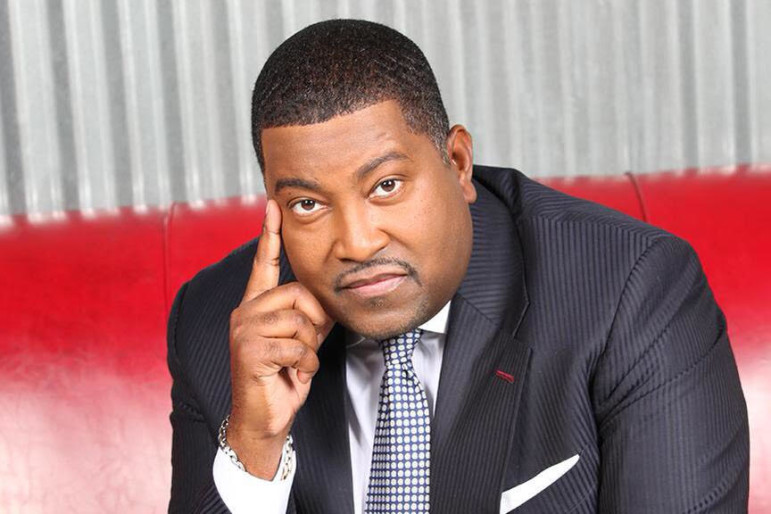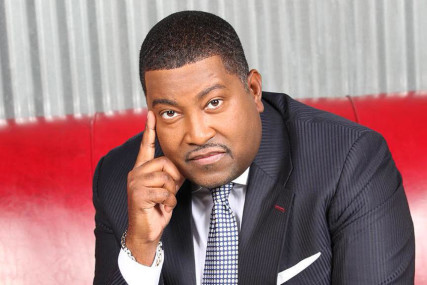The black church is hypocritical.
At least that is what Pastor E. Dewey Smith from House of Hope in Decatur, GA says. The preacher’s words are going viral after a five-minute clip of his sermon was posted on YouTube, without his consent.
He is now backtracking, slightly, claiming his comments were taken out of context and not an accurate representation of his beliefs.
The buzz began when Smith pointed to the similarities between the LGBT community and the African-American community in a sermon.
“We have done what the slave master done to us,” Smith said in the video explaining how black Christians have treated LGBT people. He claims black Christians have similarly dehumanized, degraded, and demonized LGBT people all the while taking advantage of LGBT churchgoers’ talents.
Equating the enslavement of the black community to the prejudices the LGBT community face made many uncomfortable. Many try to eliminate the LGBT experience from the black struggle – primarily due to religious beliefs that same-sex relationships, and trans identities, are sinful. In their attempt to distance the two communities, they negate the experience of LGBT black individuals.
READ: Black clergy plan African tour to fight homophobia
Now, however, Smith is clarifying the isolated clip of his sermon.
In a statement posted on Joy 105, Smith reaffirmed his longstanding beliefs that marriage is between only a man and a woman. His statement was in response to the backlash he faced from many of his churchgoers as well as church leaders. Still, while reaffirming his traditional beliefs, he urged readers to be cognizant of the pain the LGBT community endures.
I emailed Smith for further thoughts. He told me the experiences aren’t the same but many of the same themes overlap.
“Nothing has ever been more heinous than the treatment of Africans of the transatlantic slave trade. My point was that the same themes of ‘demonization’ and ‘exploitation’ are present in both,” Pastor Smith told me in an email.
The Rev. Broderick Greer, Curate at Grace-St. Luke’s Episcopal Church, who wrote a guest blog post for Faithfully LGBT on black Christianity and homophobia, agrees with Smith’s analogy:
Greer said Smith was “asserting that any force outside of us that stifles God’s image inside of us is a form of imprisonment and enslavement,” Greer told me in an email.
“The experiences of enslaved black people and closeted LGBT people are distinct, but not unrelated. For in them both and at the intersection of both, we are able to glimpse the horror of glory-suffocating conformity,” Greer wrote.
The “glory-suffocating conformity” Greer speaks of muffles the diversity and uniqueness each child of God brings to the table. That individuality is reflective of God’s image. It is also what makes each of us so incredibly important to the Kingdom of God.
READ: Black christianity is not inherently homophobic
Smith’s sermon was not radical. In the clip, he pointed to a double standard in which churches use LGBT individuals’ gifts — naming talents like music and art — while condemning them.
Of course, those are not the only gifts the LGBT community has to offer the church. Many have vocations that include clerical positions. Yet, many traditional faith traditions have no framework for those vocations.
I asked Smith what he believes churches should do for LGBT churchgoers. “At a minimum, be welcoming,” he said. “Teach the importance of love. Develop ministries and programs for families who are having a difficult time in co-existing with other gay family members.”
“Honestly, I’m still trying to figure this out. Many people, like me, have operated in ignorance and fear for a long time,” Smith told me.
He also said he received a “damning email” from one of his church leaders who is resigning from his leadership position.
“No matter how hard I’ve tried to teach, preach and model love and the affirmation of all humanity, some people won’t get it. I’m sure that he won’t be the last to leave the church; however, I must be about the ministry of Jesus. It really hurts, but I’m committed, good or bad,” Smith told me.
Smith’s sermon was a critique of the churchgoers who are comfortable benefitting from LGBT persons but lack love and grace in response to LGBT identities. Even without context, no one should believe that his sermon was promoting revisionist interpretations of scripture.
But people did, and that points to a bigger problem.
Many churchgoers are used to hearing about LGBT people from the pulpit only in a condemning manner. When they don’t hear the expected condemning tone, they suspect the Pastor is affirming same-sex relationships.
Pastors who attempt to be more gracious, or “worse” announce a theological shift to affirm same-sex relationships, will certainly face backlash. Smith is trying to respond to LGBT people as he believes Christ would. His goal is to do his part in ending the pain LGBT people face at the hands of the church. I believe that is an honorable goal but he has a lot to learn on how to reach it. His sermon is a start, but certainly not the end.
We will know we have gained ground the day a pastor such as Smith doesn’t have to provide context to a sermon acknowledging the humanity of LGBT people.






